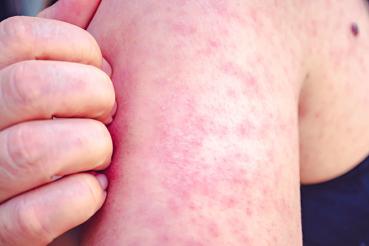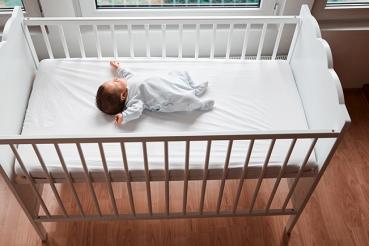So, you've bought the erasers and glue, met the new teachers and nearly perfected the morning routine. The kids are officially back in school, and you are back on track.
But as every parent learns, transitioning your children — and yourself — from the freedom of summer to the frenzy of fall is only the beginning.
If your child is in school or day care, plenty of health issues will come your way during the coming months. In addition to getting children flu shots, endorsing good hand washing habits and showing kids how to avoid sneezing into their hands, parents can minimize trips to the pediatrician by preventing these common problems.
Head lice
Lice has nothing to do with poor hygiene and a lot to do with contacting items, or people, with lice.
While head lice are definitely an annoyance, it's important to remember that they are not a health hazard since lice do not spread disease.
Instead of waiting for the telltale sign of lice — incessant head scratching — keep these pests and their eggs at bay by telling children the following:
- Avoid head-to-head contact. Creating static electricity from rubbing heads together can be fun, but it's also a good way to contract lice if one kid has lice.
- Don't borrow brushes or combs, and don't trade hats, barrettes, hair bands or bandannas. Sharing is not always caring when it comes to headwear, because it gives lice opportunities to travel and spread. Other items to avoid borrowing: scarves, headsets and earbuds.
- Don't use pillows or blankets belonging to children with lice until the lice has been treated effectively.
- Keep long hair tamed with ponytails, braids or buns to reduce the risk of contact.
- If possible, don't hang clothing (especially upper body items like sweaters, sweatshirts and coats) in common areas next to other clothing.
Another important message for parents to convey: Don't tease kids who have lice; anyone can get them.
There is a small amount of evidence that certain plant oils, including rosemary, tea tree and eucalyptus, may keep lice away. But there hasn't been enough research to determine whether products, like shampoos and sprays, that contain these ingredients actually do repel lice. And because they're considered "natural," these products are also not regulated or approved by the Food and Drug Administration (FDA).
To help avoid gastrointestinal problems resulting from contaminated food, keep food bacteria free and ensure food is stored at the appropriate temperature.
Tainted food
Many moms and dads pack their children's lunches as opposed to purchasing meals from their schools or day care centers.
To help avoid gastrointestinal problems resulting from contaminated food, keep food bacteria free and ensure food is stored at the appropriate temperature. If you're a lunch or snack packer, here are some tips for safeguarding your child's food:
- Wash your hands with soap and warm water before preparing your child's meal or snack.
- Keep cold food cold by including an ice pack with your child's meal or freezing the food or drink overnight and letting it thaw in the lunch box the next day.
- Put hot foods in a thermos.
- Purge bacteria and germs by cleaning out your child's lunchbox every day. If you use a paper bag, have your child toss it into the recycling bin after lunch or snack and start fresh with a new bag each day.
Focusing on prevention when it comes to these and other common childhood health problems can help keep kids where they belong in the fall — in school.




